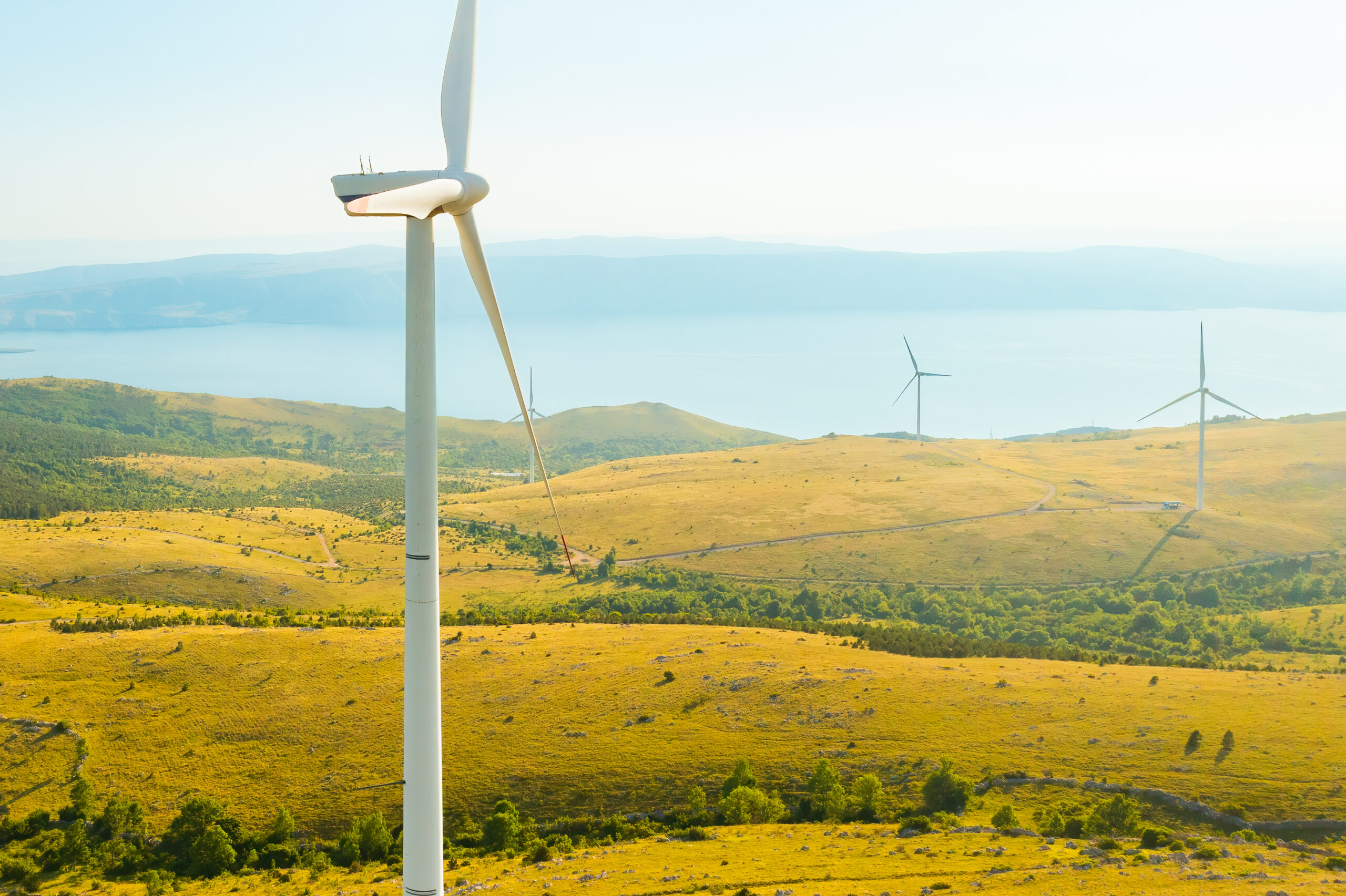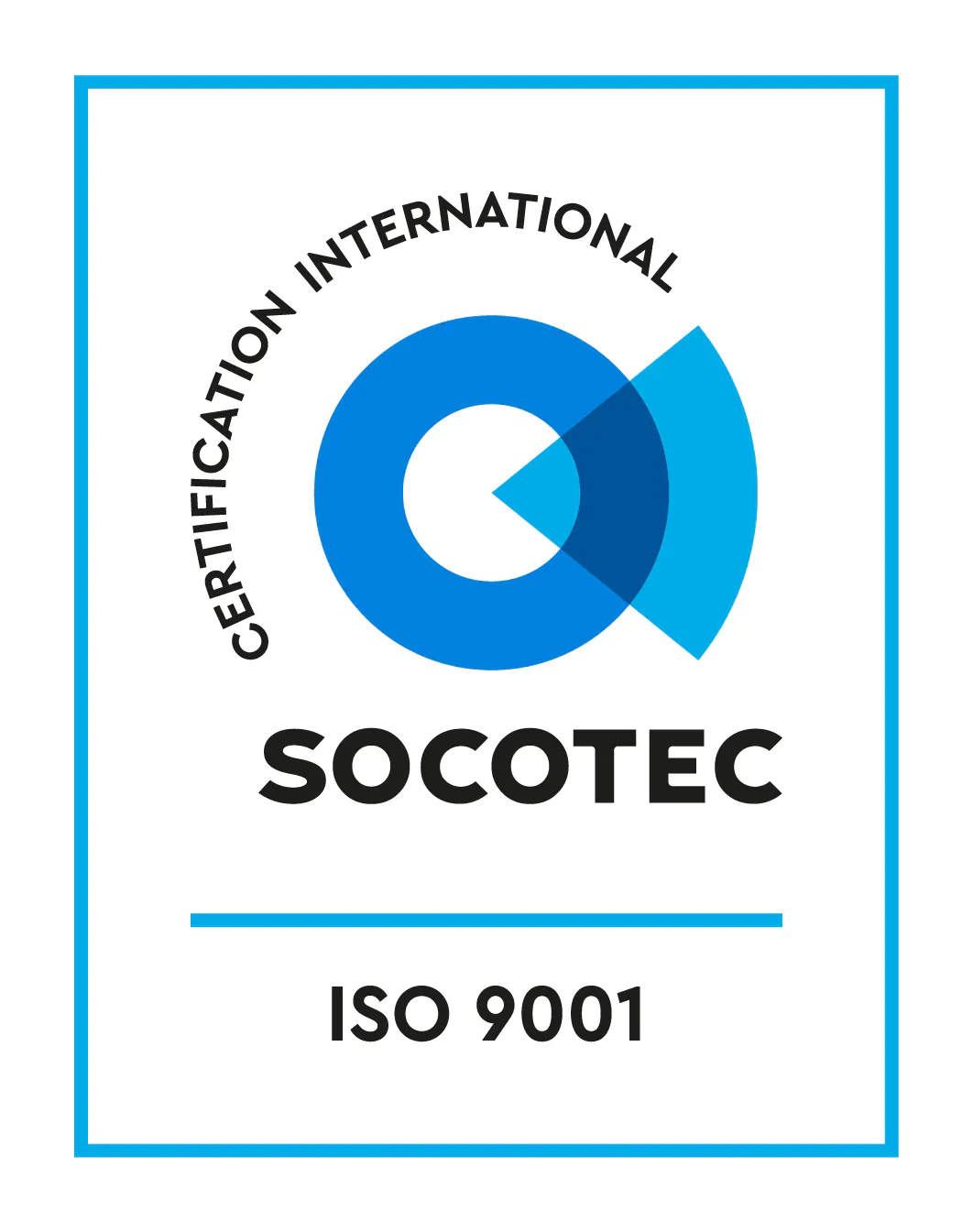Veronika Milewski, the new CEO of RTE international
Veronika Milewski alongside her predecessor Nicolas Bréham
In which context do you take up your duties as Chief Executive Officer of RTE international?
Veronika Milewski – We are entering a pivotal decade for action on the climate crisis. Electrification is a major lever for achieving carbon neutrality. According to the report “Net zero by 2050” by the IEA, electricity will account for two-thirds of the world’s energy consumption. For us professionals in the electricity sector, this is an exciting technical challenge but also a heavy responsibility. Indeed, electricity networks will play a central role in the global energy system of tomorrow. RTE international is resolutely mobilized in this transition. Relying on the know-how and skills developed over more than 70 years within RTE, its expertise is internationally recognized.
The energy transition is also a huge opportunity for economic development. RTE international is very involved in the electrification of developing countries. The company is working with numerous stakeholders to improve the accessibility and reliability of electricity in Africa, Eastern Europe, and Central Asia. It is therefore with great joy and determination that I intend to continue the development led by Nicolas Bréham, who has been at the head of the company since 2017. I would like to thank him for having given RTE international such a dynamic!
What kind of solutions does RTE international offer to achieve the energy transition?
V. M. – RTE international is working with power system stakeholders to help them be more efficient and manage the challenges of the energy transition. We provide consultancy, engineering, and technical assistance services in the electricity transmission sector across the entire value chain; from preliminary studies to network maintenance and operation. As a facilitator of the energy transition, we study the feasibility of the massive integration of renewable energy sources (RE) into the grid, all whilst helping to reinforce its stability in a context of major technological and regulatory changes. In this context, RTE international experts in Western Africa are contributing to the creation of a regional electricity market or to the construction of lines to interconnect the networks, thus enabling the integration of larger volumes of decarbonized energy. We also work with offshore air projects in Europe, offering them our expertise on the HVDC systems.
RTE international also suggests live maintenance services. This is an extremely advanced technique that only a few transmission system operators (TSOs) in the world have mastered and which makes it possible to maintain power while carrying out maintenance work.
Finally, RTE international benefits from a deep understanding of the coordination mechanisms between the TSOs. We therefore offer a range of software solutions geared to the needs of the TSOs. The 41 TSO members and 6 regional coordinating centers (RCC) of the European association ENTSO-E use for example one of our solutions for coordinating consignment planning and supply-demand balance.
How do you anticipate the growth of the electricity sector?
V. M. – I believe that in this fight against climate change, our sector is at the heart of the transformations. We are rethinking all the electricity networks around new sources of energy while deploying new electricity routes to accompany economic development. In this context of strong growth, we continue to recruit the best talents to join an exciting professional team spread out between various sites in Europe.
Any concluding remarks?
V. M. – RTE international is contributing to a more sustainable future by bringing innovative and performative solutions to its clients from around the world in order to adapt to the challenges of the energy transition. I am very excited today to join RTE international and input all my energy and experience to reinforce again its mission in the center of the climate issues of tomorrow and assist in the economic development of emerging countries.





